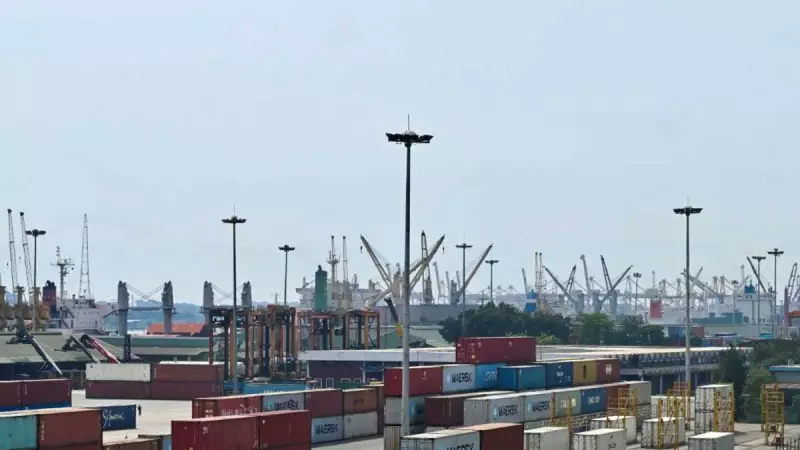
Bangladesh's vital Chittagong port has been thrown into chaos as thousands of dock workers launched a massive strike, protesting the potential foreign takeover of a key container terminal. The work stoppage has effectively paralyzed operations at the nation's primary maritime gateway, raising alarm bells across the economic sector.
Why Dock Workers Are Protesting
The heart of the conflict revolves around government plans to hand over management of the crucial New Mooring Container Terminal (NCT) to an international operator. Dock workers fear this move could jeopardize their job security and undermine national control over strategic infrastructure.
"We cannot allow our national assets to be controlled by foreign entities," declared a union leader during the protests. "This port is our economic lifeline, and we must protect both our jobs and our sovereignty."
Economic Impact on Bangladesh
The strike has created massive disruptions at Chittagong port, which handles nearly 90% of Bangladesh's international trade. The situation has caused:
- Significant cargo backlogs and shipping delays
- Container vessels stranded at anchor unable to dock
- Import-export businesses facing substantial losses
- Supply chain disruptions affecting multiple industries
Government Response and Negotiations
Authorities have scrambled to address the crisis, with port officials and government representatives engaging in urgent talks with worker unions. The Bangladesh Garment Manufacturers and Exporters Association has expressed deep concern, warning that prolonged disruptions could severely impact the country's crucial ready-made garment industry.
Security has been heightened around port facilities as both sides seek a resolution that balances modernization needs with worker protections and national interests.
Broader Implications for Bangladesh
This confrontation highlights the ongoing tension between economic modernization and domestic labor concerns in developing economies. The Chittagong port dispute serves as a critical test case for how Bangladesh navigates foreign investment while protecting local employment and maintaining control over strategic national infrastructure.
As negotiations continue, the international business community watches closely, aware that the outcome could set important precedents for future infrastructure development and foreign investment in South Asia's emerging economies.





